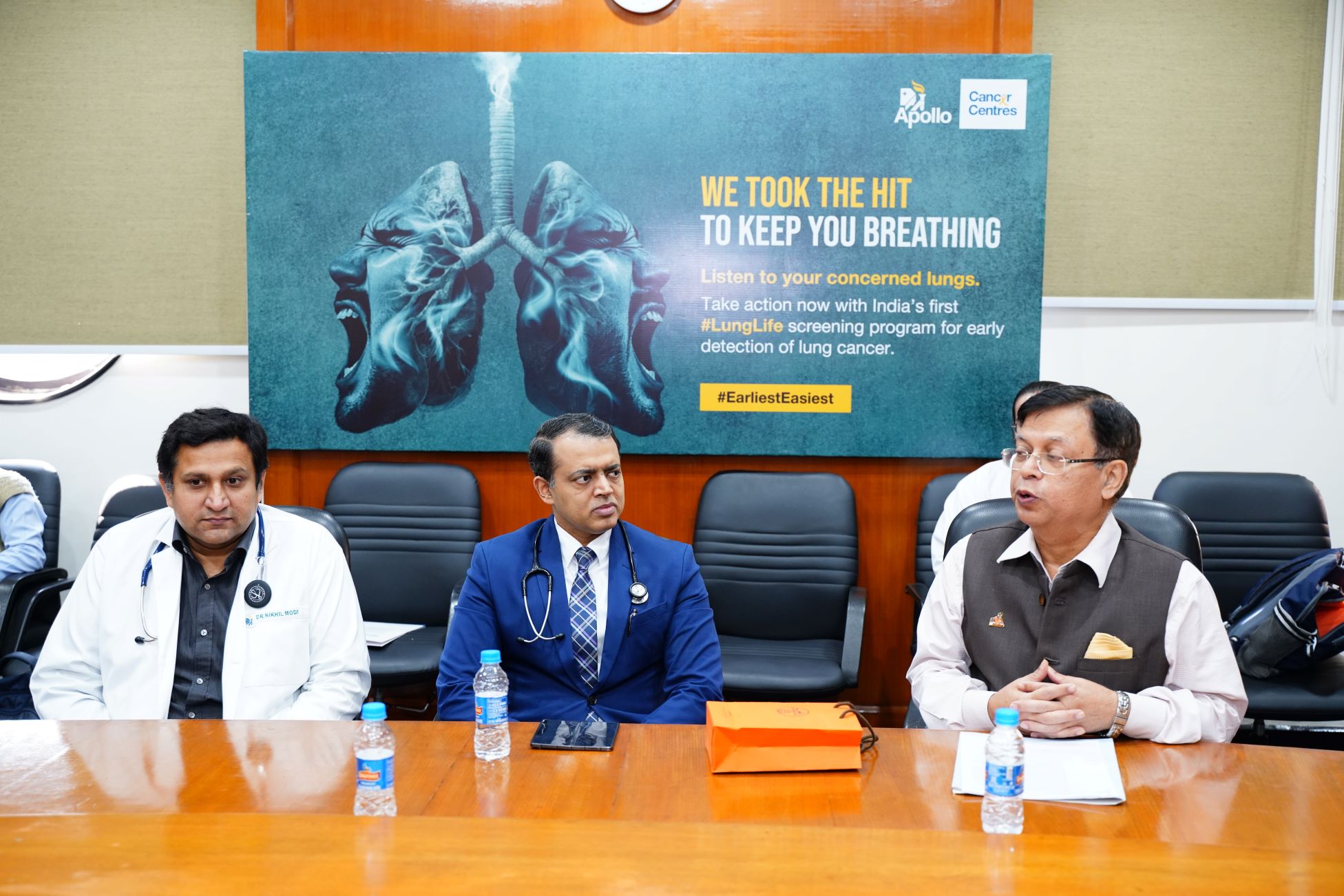Apollo Cancer Centre leads way with India’s first LungLife screening programme to combat lung cancer
November 29, 2024 | Friday | News
Early screening through low-dose computed tomography can aid in early detection
Apollo Cancer Centres (ACCs), a leader in cutting-edge cancer care, has launched India’s first LungLife Screening Programme for early detection of lung cancer. This groundbreaking initiative aims to combat lung cancer, which accounts for 5.9% of all cancers and 8.1% of cancer-related deaths in India. Early detection aids in better treatment outcome and enhances the survival rate.
GLOBOCAN 2020 estimates of cancer incidence and mortality produced by the International Agency for Research on Cancer (IARC) show as lung cancer remains the leading cause of cancer death, with an estimated 1.8 million deaths (18%) in 2020.
The LungLife Screening Programme aims at individuals who have the highest risk for lung cancer such as: (i) people between the age group of 50 and 80 years, (ii) asymptomatic (no signs or symptoms of lung cancer), (iii) individuals with a significant history of smoking and (iv) people with family history of lung cancers.
Early screening through low-dose computed tomography (LDCT) can aid in early detection and significantly improve survival rates. Yet approximately 80% of high risk individuals have never discussed screening with their healthcare providers. It is vital to enhance communication and awareness around lung cancer screening to enable early diagnosis and save lives, especially among high-risk population.
Dr Nikhil Modi, Senior Consultant - Pulmonology, Apollo Cancer Centre, New Delhi, said, "Lung cancer remains one of the deadliest cancers globally, but early detection notably enhances survival chances. Through our Lung-Life Screening Programme, we aim to identify high-risk individuals early, using advanced low-dose CT technology, which minimizes radiation exposure while maximising diagnostic precision. This programme is particularly impactful for individuals with a history of smoking, passive smoking exposure, or a family history of lung cancer. By detecting lung cancer at a treatable stage, we empower patients with better treatment outcomes and build a renewed hope for a healthier future.”









